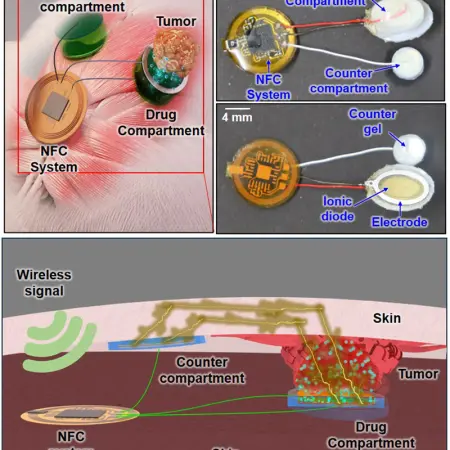This Tiny Wireless Implant Blasts Tumors With Chemo And Then Disappears

A team of scientists in South Korea has developed a wireless implantable device that delivers targeted chemotherapy deep into solid tumors, without damaging the surrounding healthy tissue.
The breakthrough could mark a major shift in how cancer treatment is delivered, potentially reducing the harsh side effects that have long been associated with systemic chemotherapy.
Researchers from Seoul National University, the Korea Institute of Science and Technology (KIST), and several partner universities created a tiny implant that can be inserted directly into a tumor. Once in place, it uses wireless signals to release precise doses of anticancer drugs on command.
"One of the biggest challenges in chemotherapy is delivering drugs where they’re needed, without harming everything else," said Professor Seung-Kyun Kang, co-lead author of the study. “This system solves that by putting the drug depot inside the tumor and controlling it remotely.”
In lab tests, the device enabled deep drug penetration into solid tumors in mice while keeping concentrations low in surrounding organs. That’s a critical improvement over traditional chemotherapy, which floods the entire body and often causes toxic side effects.
The system uses a biodegradable reservoir and a wirelessly activated heater, which controls the rate at which the drug is released. Once its job is done, the implant gradually dissolves, removing the need for surgical removal.
Because it’s wireless and minimally invasive, the team envisions the technology being used for hard-to-reach or drug-resistant tumors, including in the brain, liver, or pancreas.
While human trials are still ahead, the research adds momentum to a growing field of precision oncology, where treatment is delivered exactly when and where it’s needed.
By putting chemotherapy inside the tumor, and only the tumor, this wireless approach could make cancer treatment more effective, and far less punishing for patients.